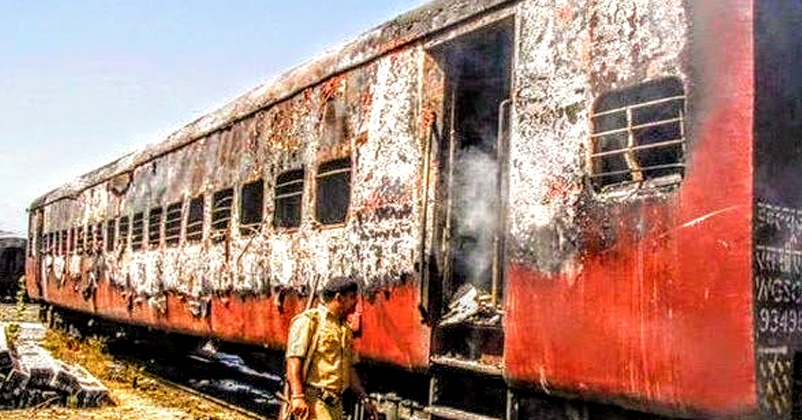27 February, 2002: "Godhra Train Massacre: 59 lives lost: Unraveling the Shadows of a Pre-Planned Tragedy"
Total Views |

The Godhra train massacre took place on February 27, 2002, in the town of Godhra, Gujarat. A train called the Sabarmati Express, carrying Hindu pilgrims returning from Ayodhya, was attacked by a mob of individuals, primarily Muslims at the Godhra railway station.
The Godhra train burning resulted in the death of 59 people, most of whom were Hindu pilgrims returning from Ayodhya. The victims were kavariyas, devotees who undertake a pilgrimage to fetch holy water from the Ganges River during the month of Shravan.
The aftermath of the Godhra train massacre led to widespread communal violence in Gujarat, leading to additional casualties and significant social and political consequences.
After six years of going over the details, Nanavati-Mehta Commission submitted its preliminary report which concluded that the fire was an act of arson, committed by a mob of one to two thousand locals. Maulvi Husain Haji Ibrahim Umarji, a cleric in Godhra, and a dismissed Central Reserve Police Force officer named Nanumiyan were presented as the "masterminds" behind the arson.
In February 2011, a special court in Gujarat convicted 31 people and acquitted 63 others based on the murder and conspiracy provisions of the Indian Penal Code, saying the incident was a "pre-planned conspiracy." Of those convicted, 11 were sentenced to death and the other 20 to life in prison. Maulvi Umarji, presented by the Nanavati-Shah commission as the prime conspirator, was acquitted along with 62 others accused for lack of evidence.

